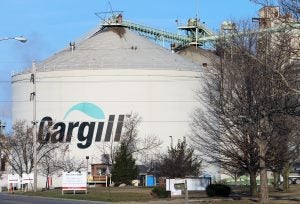Cargill is partnering with actress Gwenyth Paltrow’s GOOP. Yes, you read that correctly. One of agriculture’s largest companies is now a supplier to the actress’s “wellness” company, which hawks supplements, alternative medicine, and pseudoscience. This is the same Paltrow who recommends shoving jade eggs up your vagina, vampire facials, and vaginal steaming. She also falsely claimed wearing a bra causes breast cancer. Paltrow continues to expand her influence and moved her shenanigans to more mainstream outlets: her show “The GOOP Lab” now features on Netflix.
So why is Cargill interested in a celebrity who routinely crosses ethical boundaries by making unsubstantiated — and sometimes dangerous — health claims? It’s part of Cargill’s expansion into the nutrition-supplements market. It’s a huge industry, bringing in over $36 billion annually in the United States alone. That’s despite the fact that these supplements are largely useless at best, and unregulated and dangerous at worst. Cargill’s CEO Dave MacLennan sees these “microingredients” as the future and now insists that animal agriculture incorporate them.
If it all sounds a bit loopy and mystifying, that’s because it is. But this hardly the first time Cargill entered into questionable partnerships.
Cargill proudly partnered with The Non-GMO Project in 2017, an organization responsible for allegedly certifying, under the guise of choice, that products are free from genetically modified food risks. The irony is that its monarch butterfly logo now litters grocery-store shelves, reducing choice as more companies opt for the pay-to-play model. And its social media campaigns malign the adoption of safe and rigorously tested genetic-engineering technology.
But Cargill didn’t seem to care about any of those details. It boasted of the partnership on social media channels. I vigorously called the company out, even receiving national attention for my efforts. Here was an agriculture giant lending its voice and credibility to an organization that attacks the same crops Cargill purchases from farmers all over the country. Yet Cargill refused to acknowledge the hypocrisy.

Cargill later raised eyebrows in 2018 when it entered into a joint venture with PURIS, a pea protein company, to ramp up its plant-based protein production. Cargill made an initial investment of $25 million into the company’s coffers. Cargill reaffirmed its commitment to PURIS in August 2019 when it sunk an additional $75 million into retrofitting PURIS’s facility in Minnesota.
When I learned about the initial investments, I reached out to Cargill for comment. I was told by Cargill media liaison April Nelson that the company understands the world will need both plant- and animal-based proteins to feed 9 billion people by 2050. And the vile language targeting genetic engineering and playing on chemophobia on PURIS’ website? Cargill takes a “broader view.” Nelson explained, “We recognize the efforts and success of farmers and producers across the supply chain to sustainably feed the world, using a wide-variety of methods, including GM technology.”
Nelson promised that she would pass along my concerns to PURIS.
But why bother? According to PURIS President Tyler Lorenzen, Cargill was completely on board with his company’s salacious comments.
“Cargill is investing in everything PURIS stands for, from our vertically integrated non-GMO pea seed development to our proprietary technologies and our commitment to U.S. Certified Organic pea farmers,” Lorenzen said in a January 2018 press release.
No one is faulting Cargill for making wise business decisions. It’s absolutely true that the human population’s future protein supply must come from both animals and plants. And the plant-based protein is a burgeoning business making for a smart investment. So Cargill’s moves in this area make sense.
But while Cargill is making these investments, it should also take its role as a leading agricultural company seriously. How come it didn’t demand that PURIS change its marketing? If you’re an investor that’s about to drop millions of dollars, asking your investment to tone down the rhetoric or choose a different approach should be a given, especially when the accusations are lobbed at the same group of people — farmers — that have made you so rich in the first place.
Listen, I’m not asking Cargill to forego these investments completely. I understand the company is going to make decisions based on what’s profitable and where the market is going. If plant-based proteins are a solid investment, then Cargill should make those investments . If Cargill wants to work with a celebrity wellness brand, it should find someone less out-of-this-world (not to mention, quite frankly, dangerous) as Paltrow.
But it should also realize it doesn’t act in a vacuum. Cargill has a large and mighty platform built from the farmers it works with on a local level. At the very least, it should consider how these partnerships and investments impact those farmers and their families. Simply saying you take a “broader view” on something isn’t enough. Cargill should use its money as a leverage to tamper the more radical aspects of these businesses and tame the rhetoric, if only for the sake of those farm families in the firing line.
Because, ultimately, that’s what Cargill’s money gets it: power. It’s influence that average farmers don’t have. Cargill is the driver, not the reluctant passenger. It’s time it acts like it.
Amanda Zaluckyj blogs under the name The Farmer’s Daughter USA. Her goal is to promote farmers and tackle the misinformation swirling around the U.S. food industry.



